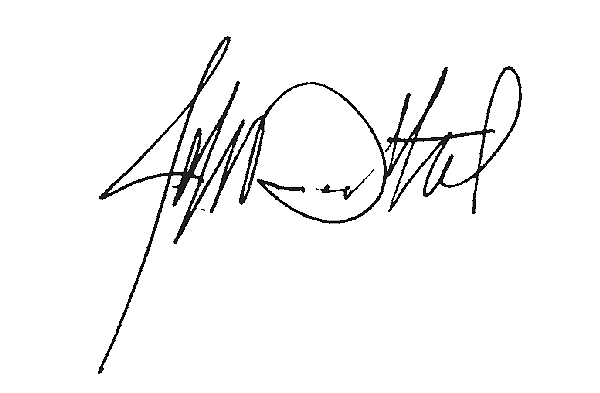By Jeff Rosenthal and Adam Minsky
Like many in our community, we’re closely following the ongoing political debate in Israel. Since our last update, we’ve grown even more concerned about the polarization taking place in Israel and, with it, the consequences for communities like our own. We’re writing today to share our thoughts on what we’re hearing, how it is shaping our approach to this contentious issue, and what you can count on from UJA Federation.
Speaking to Israelis as Family
We recently had the opportunity to participate in a leadership mission to Israel convened by the Centre for Israel and Jewish Affairs (CIJA), the advocacy agent of Canada’s Jewish Federations. We met with Israeli officials across the political spectrum to listen, learn, and share our own candid views on the current Israeli debate on judicial reform and the impact it’s having on our community.
What we heard in response was striking, particularly from opposition Members of Knesset (Parliament). These parliamentarians ardently oppose the judicial legislation proposed by the current government and have even joined the hundreds of thousands of Israelis who have protested in the streets. One would expect them to urge our delegation, as Diaspora representatives, to join them in vocally condemning the legislation. To the contrary, when we asked for their thoughts on the role that Diaspora Jews can play at such a time, their consistent message was a powerful one. They encouraged us to continue engaging Israelis as one does a family member in moments of need—by sitting down and sharing one’s views in person, rather than through angry social media posts or press releases.
When Debate Becomes Division
When a family member is struggling, one’s instinct is to help. To be sure, every generation of Israelis has struggled with politically charged moments and resolved them through the mechanisms of democracy. Israeli politics is intense and even hyper-democratic in ordinary times. But there’s no question that, today, Israelis are facing the most divisive debate the country has seen in decades.
Indeed, Canadian legal scholar and former justice minister Irwin Cotler—who opposes the judicial reforms—has also criticized the vicious rhetoric that’s emerged on both sides of the debate. “When you get that type of overreach in the indictment of the proposals, then you end up in a situation where one side, the government, says it is trying to restore democracy, and the other side says this is the end of democracy,” said Cotler in a recent interview with the Times of Israel. He argues that neither claim is accurate, and what’s needed instead is “engagement without that kind of apocalyptic language.”
The Role of our Jewish Community–and Your Jewish Federation
Across political lines, our Toronto Jewish community has long been unified by our love for Israel. A 2018 study of Canadian Jewry—the most recent and comprehensive poll of the community—showed nearly 9 in 10 Canadian Jews feel that “caring for Israel” is either essential or important to Jewish identity. The same study found that, within that consensus of love for Israel, there is a diversity of views on Israeli policy issues. Our support for a thriving Jewish state has never meant uniform agreement on Israeli politics.
For a community with such close connections to Israel, the polarization flooding the Israeli Knesset, media, and streets cannot help but impact us. If our extended Jewish family is struggling, what is the role of our Toronto Jewish community? How can UJA Federation—which strives to unite the broadest possible segment of a diverse community—help Israelis overcome their divisions and emerge stronger?
First, at times of polarization, we must model how to hold difficult conversations without fueling divisions. UJA recently convened a session of leading rabbis and Jewish educators from across the diverse spectrum of Jewish life, the first in a series of consultations we are holding with Jewish leaders across the GTA. These individuals share a dedication to serving community and so much more—including a love for Israel, belief in the importance of Israeli democracy, and a dedication to Jewish unity.
And yet, the group voiced sharply contrasting views on the policy issues being debated in Israel. The range of opinions included those who vocally oppose the proposed Israeli reforms, those who feel that (as non-citizens of Israel) it’s not the role of Canadian Jews to prescribe the policy choices of Israelis, and others whose views are somewhere in between those two positions.
The conversation was open and candid, but it was also respectful and unifying. Leaders emerged with a better understanding of one another and a greater realization that these issues are being felt in different ways throughout our diverse community.
For a big-tent organization like UJA Federation, representing the community when consensus is elusive doesn’t mean voicing one viewpoint and excluding others. It means creating meaningful spaces for good people to disagree in a way that’s healthy, rather than harmful. For a Jewish community as uniquely strong as ours, this is how we can lead by example in a polarized world.
Second, we must continue to speak with Israeli officials in the way that they are most likely to hear: through clear and direct dialogue. Through CIJA, the Jewish Agency, and our other global Jewish partner organizations, UJA remains in ongoing communication with Israeli leaders across political lines. This includes a meeting just 48 hours ago with Idit Shamir, Consul General of Israel in Toronto and Western Canada. As we found in our recent meetings in Israel, direct engagement is especially crucial given the array of issues and the rapidly changing political situation.
Throughout our dialogue at various levels, we have been candid in sharing what we’re hearing and seeing within our community, as well as the critical importance of Israel’s democratic character as articulated in the Israeli Declaration of Independence. So too, we have been open about recognizing the fluidity of the Israeli democratic process and the absence of a clear consensus within our community—as in Israel—on many of these complex issues.
In the coming weeks, we hope that a political resolution can be found that heals divisions and brings Israelis together in consensus. Because history teaches us that, whatever disagreements we may have with each other, our future is one that we’ll share with all Jews—whether we live next door or on the other side of the world. And how we choose to act in heated moments will shape that shared future, for better or worse.
|
|
PS: We appreciate feedback and are grateful to have received messages from community members sharing their views. If this topic is weighing on your mind, please email us to let us know your thoughts.
We will continue to bring together different voices to listen and learn from one another, including through an upcoming “Unity Not Uniformity” webinar hosted by CIJA. We encourage you to join us for this important program at noon tomorrow.


